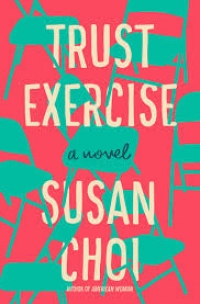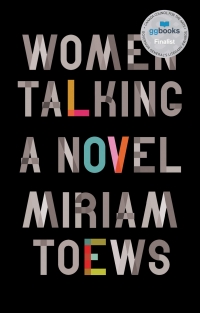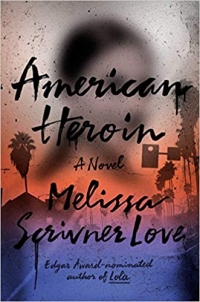Trust Exercise by Susan Choi
 Monday, April 8, 2019 at 6:24AM
Monday, April 8, 2019 at 6:24AM 
Published by Henry Holt and Co. on April 9, 2019
There was a movie-based television show called Fame in the 1980s about students who attended a performing arts high school. The first half of Trust Exercise reads like a novelization of Fame, except that the characters have more sex. The best scenes are about the tensions and insecurities of performance. The most dismal scenes (and there are too many of them for my taste) reflect the melodrama of sexually charged teenage life. Fame was mildly entertaining because of the students’ performances, as opposed to their melodrama. Since a novel must describe (for example) a singing performance rather than allowing a reader to hear the song, I was underwhelmed by the novel’s first half. But then the novel became something different, an adult story of substance.
Sarah is 14 in 1982, attending a theatre arts school in the South, where she is mentored by Mr. Kingsley until he seems to lose interest in her. She gets it on with a boy named David and subjects her other friends to teen drama because that’s what teenage girls do. Other characters have drama that is peripheral to Sarah’s, including some visiting British students who stage a production of Candide that strikes the community as scandalous. Sometimes Sarah makes the lives of other students worse because, well, she’s a teenager.
By the end of the novel’s first half, Sarah is 16 and filled with turmoil. The second half twists the story in a way that gives the title a new meaning — as in, reading is an exercise of trust in the author that might be misplaced. The second half jumps forward 14 years and focuses a character who is called “Karen” in quotation marks because (she tells us) women named Karen are bland and nondescript. Karen Wurtzel is a seemingly minor character in the novel’s first half who is notable for having a relationship with an adult British teacher named Martin who accompanied the British acting students.
We learn in the second half that Karen abandoned acting and singing after graduating high school, studied modern dance in college, and became an accountant, a bland career for a bland person. Having returned to the town where she went to high school, Karen is again in contact with David. She eventually renews her acquaintance with Sarah when she gets Sarah’s autograph on a book that Sarah has written.
Karen’s references to her own name in quotation marks and to “the person we’re calling Mr. Kingsley” give the reader a clue that something is amiss in the telling of the novel’s first half. Karen seems to be fascinated by words and their potential or unintended meanings, which is fascinating for readers who love words. Words have the potential to mislead and the reader begins to suspect that a good many words in the novel have been misleading in some way. As the novel’s second half dissects the first half, the true nature of the first half becomes clear. A final, relatively short section focuses on a new character who adds an unexpected twist to the story.
A central theme in Trust Exercise is that acting requires true emotions to be felt in false circumstances — but how do we know that an emotion is true? The novel is clever in its construction and perceptive in its characterizations, while reminding us that characters are, in fact, just characters. They are what the author wants us to see, just as real people portray themselves as they want others to see them. The novel demonstrates, in fact, how people — not just actors — play a part, and how difficult it is for individuals to set aside their masks and be real. That’s more insight than you’ll get from watching the entire five-year run of Fame, although a reader will need to make it through the first half to reach the good stuff.
RECOMMENDED
 TChris |
TChris |  Post a Comment |
Post a Comment |  Susan Choi in
Susan Choi in  General Fiction
General Fiction 


